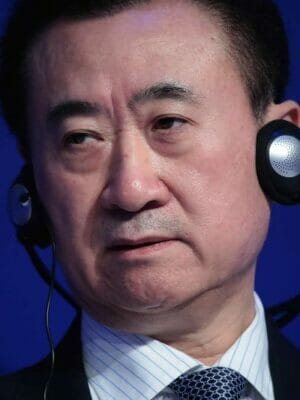
Wang Jianlin appears to have scored a double-bogey on this latest hole
Wang Jianlin’s Dalian Wanda Group continues to find itself deep in China’s regulatory rough this week as mainland authorities have shut down two of the company’s high-end golf courses amid an austerity drive.
The courses are part of Wanda’s Changbaishan International Resort, a RMB 23 billion ($3.5 billion) development in the northeastern province of Jilin, close to the border with North Korea. The government of the local Fusong county revoked permission for the two golf courses to operate there, according to a notice dated October 1 cited by the Financial Times.
The municipal government action against the pair of golf courses brings to the fore Beijing-based Wanda’s regulatory woes, and is the latest shanked drive in chairman Wang Jianlin’s campaign to turn his conglomerate, the country’s largest mall-builder, into a tourism and entertainment heavyweight.
Wanda Courses a Casualty of China’s Tightening Grip
Opened in 2012, the resort has an 18-hole golf course designed by Jack Nicklaus along with a 36-hole Robert Trent Jones Jr course. The 21 square kilometre complex, which Wanda developed with five other partners in the frigid, alpine region, also features 43 ski slopes, Park Hyatt and Westin hotels, a cinema, and other amenities.

Changbaishan International Resort opened in 2012
Although China banned new golf courses in 2004, developers took advantage of loopholes to build hundreds of new courses in the following years. The government launched a national crackdown in 2011, shutting down 111 of the existing 683 golf courses over environmental and other violations, and ordering another 507 courses to be “rectified.”
The pair of Wanda links in Jilin were flagged for minor violations in a January report by China’s National Development and Reform Commission, and appeared to be allowed to fix the problems and continue operating as normal. In May, however, 11 government agencies announced a follow-up inspection campaign, which resulted in golf courses being shut down in Beijing, Shanghai, Chengdu, and other cities.
The move against the Wanda links comes ahead of a key leadership meeting, the 19th Congress of the Chinese Communist Party that begins this week, and is part of a broader drive by the country’s authorities to clamp down on alleged corruption, luxury, and waste.
China’s Biggest Mall Builder Tries to Stay on Course

It seems that Chinese regulators are teed off at Wang’s Robert Trent Jones Jr-designed course
Wanda latest double-bogey follows several months of play deep in China’s regulatory bunkers. The conglomerate has joined a leader board of privately held corporate giants – including Anbang Insurance Group, Fosun International, and HNA Group – that have drawn government scrutiny over their high debt levels and showy overseas investments.
In July, Chinese President Xi Jinping reportedly signed off on a disciplinary measure against Wanda’s overseas entertainment projects, including its acquisitions of American cinema chain AMC and film producer Legendary Entertainment, prompting Wang to say he would keep his company’s main acquisitions within China in the future.
The clampdown has prompted Wanda to embark on a restructuring of its property empire. In July, Wanda sold a 91 percent stake in its portfolio of 13 “cultural tourism” projects for RMB 43.8 billion ($6.5 billion) to Tianjin-based developer Sunac China, which also agreed to take on RMB 45.4 billion ($6.7 billion) of loans attached to the assets. Changbaishan International Resort was not part of that deal.
Amid the intensifying pressure, Wang has also lost his crown as China’s richest person, coming in fifth place in the 2017 ranking published by the Hurun Report. The tycoon has seen his family wealth drop by 28 percent over the past year, according to the report, as the company’s share price falls back in the rankings.
According to the Financial Times account, Wanda’s contract with Fusong county stipulates that Fusong will take “full responsibility” in case the developer is punished over land use for the golf courses.
Leave a Reply